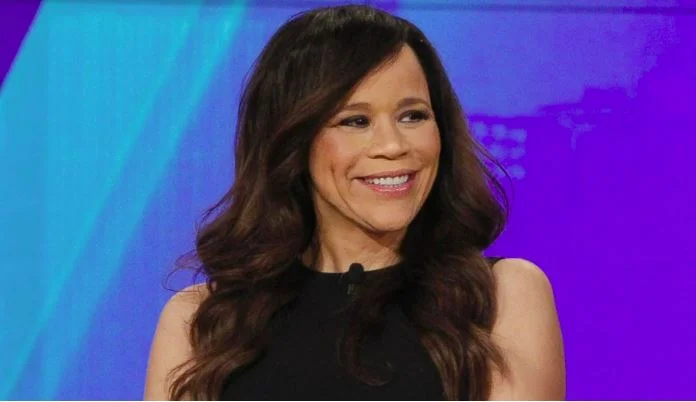
Rosie Perez Ethnicity and Parents Origin
Rosie Perez, a celebrated actress, choreographer, and activist, has made significant contributions to film and television over the years. With a career spanning more than three decades, she is renowned for her distinctive voice, compelling performances, and vibrant personality. However, what many might not know is that Perez’s ethnic background and parental origins play a crucial role in shaping her identity and artistic expression.
Rosie Perez Cultural Background
| Category | Actors |
|---|---|
| Full Name | Rosie Perez. |
| Birthdate | September 6, 1964. |
| Birthplace | Brooklyn, New York. |
| Ethnicity | Taino, African, Spanish and Puerto Rican descent. |
| Father Ethnicity | Puerto Rican descent. |
| Mother Ethnicity | Puerto Rican descent. |
Rosie Perez is a prominent figure in the entertainment industry, known for her talents as an actress, choreographer, and advocate. However, her cultural background is equally important in understanding her identity and the themes she explores in her work. Born on September 6, 1964, in Brooklyn, New York, to Puerto Rican parents, Perez embodies a rich tapestry of cultural influences that have shaped her artistic voice and activism.
Rosie Perez Puerto Rican Heritage
At the heart of Rosie Perez’s cultural identity is her Puerto Rican heritage. Puerto Rico, a Caribbean island with a complex history of colonization and cultural exchange, has greatly influenced Perez’s life and career. The island’s culture is a blend of indigenous Taino, African, and Spanish elements, resulting in a unique identity that Perez proudly represents. This diverse heritage is reflected in her work, where she often incorporates themes of identity, resilience, and the struggles faced by the Puerto Rican community.
Growing up in a predominantly Hispanic neighborhood in Brooklyn, Perez was immersed in Puerto Rican culture from a young age. She participated in traditional celebrations, experienced the richness of Puerto Rican cuisine, and engaged with the language and customs of her ancestors. This cultural foundation has informed her perspectives and performances, enabling her to bring authenticity to her roles.
Rosie Perez Influence of Taino Culture
The Taino people, the indigenous inhabitants of Puerto Rico, form a crucial part of Perez’s cultural background. Despite facing significant challenges due to colonization and assimilation, the Taino legacy persists in contemporary Puerto Rican identity. Perez often emphasizes the importance of recognizing and honoring indigenous roots, advocating for greater awareness of the Taino culture’s contributions to Puerto Rican society. Her work serves as a reminder of the resilience of indigenous communities and the need to celebrate their heritage.
Rosie Perez African Influence
In addition to her Taino and Spanish heritage, Rosie Perez’s cultural background is enriched by African influences, which are significant in Puerto Rican culture. The African diaspora has shaped various aspects of Puerto Rican music, dance, and art. This connection is particularly evident in the vibrant rhythms of salsa and the powerful storytelling found in traditional folklore. Perez’s work often reflects this dual heritage, showcasing the intersection of African and Puerto Rican cultures and addressing issues of racial identity and representation in her performances.
Rosie Perez Advocacy and Cultural Representation
Throughout her career, Rosie Perez has used her platform to advocate for underrepresented communities and raise awareness about the challenges they face. She has been vocal about issues affecting Puerto Ricans, particularly after the devastation caused by Hurricane Maria in 2017. By highlighting the struggles and resilience of her people, Perez strives to bring attention to the importance of cultural representation in media.
Her advocacy extends beyond Puerto Rican issues, as she often speaks out against stereotypes and promotes the need for authentic portrayals of diverse communities in Hollywood. Through her activism, Perez aims to inspire future generations to embrace their cultural identities and advocate for social justice.
Rosie Perez Ethnic Heritage
Rosie Perez was born on September 6, 1964, in Brooklyn, New York, to a Puerto Rican family. Her ethnicity is primarily Puerto Rican, characterized by a rich blend of Taino, African, and Spanish influences. This diverse cultural background has profoundly impacted her work and public persona, allowing her to infuse her performances with authenticity and emotional depth. Growing up in a predominantly Hispanic neighborhood, Perez was immersed in the vibrant culture of her ancestors, which shaped not only her artistic expression but also her commitment to advocacy. Her experiences in this community allowed her to understand the significance of her heritage, motivating her to highlight underrepresented voices in her work.
The Taino people, the indigenous inhabitants of Puerto Rico, represent a foundational element of Perez’s ethnic identity. Despite facing significant challenges throughout history due to colonization and cultural assimilation, the influence of the Taino remains vibrant in contemporary Puerto Rican culture. This heritage fosters a deep sense of pride in Perez, who often references her roots in interviews and public appearances. Additionally, her African ancestry plays a crucial role in her heritage, reflecting the broader African diaspora’s impact on Puerto Rican culture. This combination of influences enriches Perez’s artistic voice and enables her to resonate with diverse audiences, further solidifying her role as a significant figure in both film and social activism.
Rosie Perez Siblings
Rosie Perez, the talented actress and choreographer, not only has a remarkable career but also an interesting family background. Growing up in Brooklyn, New York, she experienced a challenging childhood that was influenced by her family’s dynamics. In addition to her own achievements, her siblings also play a significant role in her life and story.
Rosie Perez Siblings Overview
Rosie Perez has a total of three siblings: two brothers, Garry and Eric, and a sister, Carmen. Each sibling has their unique personality and life journey, contributing to the family’s diverse tapestry. The Perez family faced many struggles during their upbringing, which forged a strong bond among the siblings and shaped their individual paths.
Rosie Perez Older Brother Garry Perez
Garry, the eldest of Rosie’s siblings, has largely stayed out of the public eye, maintaining a low profile compared to Rosie. While specific details about his life are scarce, Garry has been known to support Rosie in her endeavors. Growing up in a challenging environment, he, like Rosie, has faced hardships that have shaped his character and outlook on life.
Rosie Perez Older Brother Eric Perez
Eric is another brother who has remained largely private about his life. Like Garry, he has been supportive of Rosie’s career and is part of the family network that has been there for her throughout her rise to fame. Eric’s relationship with Rosie reflects the strong family ties they share, often highlighted in Rosie’s interviews.
Rosie Perez Younger Sister Carmen Perez
Carmen is Rosie’s younger sister, and their bond is especially strong. She has been more public than the brothers, often appearing in media discussions about Rosie. Carmen has had her struggles, including personal challenges that Rosie has openly addressed in interviews. Rosie has spoken about the importance of family in her life, and her relationship with Carmen is a testament to that sentiment. Despite facing difficulties, Carmen has shown resilience, mirroring Rosie’s journey.
Rosie Perez Family Influence
The Perez siblings grew up in a tumultuous environment, which significantly influenced their individual lives. The bond they share, forged through their shared experiences, has been a source of strength for Rosie throughout her career. Rosie often credits her family for providing the foundation she needed to succeed in the entertainment industry. She remains close to her siblings, and their support has been invaluable as she navigated the challenges of Hollywood.
Rosie Perez Parental Origins
Rosie Perez’s parental origins are intricately woven into the fabric of her Puerto Rican heritage, which has profoundly influenced her identity and career. Her mother, Lydia Pérez, emigrated from Puerto Rico to New York City, carrying with her the rich cultural traditions and values of her homeland. As a single mother, Lydia faced the daunting challenges of raising a family in a new and often unforgiving environment. Her resilience and determination in overcoming obstacles served as a powerful example for Rosie, instilling in her a sense of strength and ambition. Despite the hardships Lydia encountered, including financial struggles and the pressures of adapting to a foreign culture, she remained committed to providing for Rosie and ensuring she received a good education. This dedication to family and perseverance in the face of adversity significantly shaped Rosie’s worldview and work ethic.
Rosie’s father, also of Puerto Rican descent, played a complicated role in her early life. He had a strained relationship with Lydia and was largely absent during Rosie’s formative years. This absence forced Rosie to navigate her upbringing without a father figure, leading her to develop a strong sense of independence and self-reliance. The emotional challenges stemming from this family dynamic fostered her resilience and motivated her to pursue success in a predominantly white industry, where representation was often lacking. Perez frequently reflects on how these experiences influenced her career choices and fueled her passion for advocating for underrepresented communities, highlighting the importance of her roots in shaping her identity as both an artist and a champion for social justice.
Rosie Perez Professional Career
Rosie Perez is a multifaceted talent whose career spans over three decades in film, television, and theater. Known for her distinctive voice, energetic performances, and powerful advocacy for the Latino community, Perez has made a significant impact in the entertainment industry.
Rosie Perez Early Career and Breakthrough
Rosie Perez’s professional journey began in the late 1980s when she was discovered as a dancer. Her choreography skills earned her a place as a choreographer for the Fly Girls on the popular television show “In Living Color” (1990–1994), where she showcased her dancing talent alongside other notable performers. This exposure catapulted her into the spotlight, allowing her to transition into acting.
Her breakthrough role came in 1993 with “Fearless,” directed by Peter Weir. Perez portrayed the character of a flight attendant who forms a deep bond with a man who survives a plane crash. Her performance garnered critical acclaim and earned her an Academy Award nomination for Best Supporting Actress. This role showcased her ability to convey complex emotions, establishing her as a serious actress.
Rosie Perez Notable Film Roles
Following her success in “Fearless,” Perez continued to take on diverse roles in films. She starred in “White Men Can’t Jump” (1992) alongside Wesley Snipes and Woody Harrelson, playing the role of Gloria, a strong-willed girlfriend. The film became a cult classic and highlighted Perez’s comedic talent.
In addition to these roles, Perez appeared in several other notable films throughout the 1990s and 2000s, including:
“The 24th Day” (2004), where she starred alongside James Marsden.
“The Road to El Dorado” (2000), an animated film in which she provided the voice for the character Chel.
“The Flight Attendant” (2020), a critically acclaimed series where she played a significant role as Megan Briscoe.
Throughout her film career, Perez has often chosen projects that resonate with her personal experiences and values, contributing to stories that reflect the complexity of the Latino experience.
Rosie Perez Television Career
In addition to her film work, Rosie Perez has had a successful television career. She appeared in several series, including “The Comeback” (2005) and “The View” (2014–2015) as a co-host, where she used her platform to discuss issues affecting the Latino community and women’s rights. Her appearances on talk shows and reality programs have further solidified her status as a prominent voice in the industry.
More recently, Perez starred in “The Flight Attendant,” where her performance was lauded for its depth and humor. The series, based on the novel by Chris Bohjalian, showcases her versatility and ability to tackle both dramatic and comedic roles.
Rosie Perez Choreography and Advocacy
Beyond acting, Rosie Perez is also known for her choreography. She has worked on numerous projects, including music videos for artists such as Janet Jackson and Madonna, showcasing her skills as a dancer and choreographer.
Additionally, Perez has been a vocal advocate for various social issues, including education, immigration rights, and the representation of Latino artists in Hollywood. She has used her platform to promote change, speaking out against the lack of opportunities for minority actors and advocating for greater diversity in the entertainment industry.
Conclusion
Rosie Perez’s ethnicity and parental origins are integral to understanding her journey as an artist and activist. Her Puerto Rican heritage plays a crucial role in shaping her artistic identity, offering a lens through which she interprets the world. This cultural background, steeped in a rich tapestry of Taino, African, and Spanish influences, informs her performances and her passion for social justice. Growing up in a challenging environment where she faced adversity, Perez’s tenacity and resilience are deeply rooted in her family’s history. Her mother’s struggles as a single parent instilled in her a fierce determination to succeed and uplift others. This commitment is evident in her advocacy work, where she uses her platform to champion the rights of marginalized communities.
As Rosie Perez continues to break barriers in Hollywood, she embodies a powerful symbol of resilience and cultural pride. Through her various roles in film, television, and theater, she not only entertains but also educates audiences about the importance of representation and diversity. By sharing her experiences and embracing her heritage, Perez ensures that the stories of her ancestors and the challenges faced by her community are brought to the forefront, leaving an indelible mark on the entertainment industry and society as a whole.



